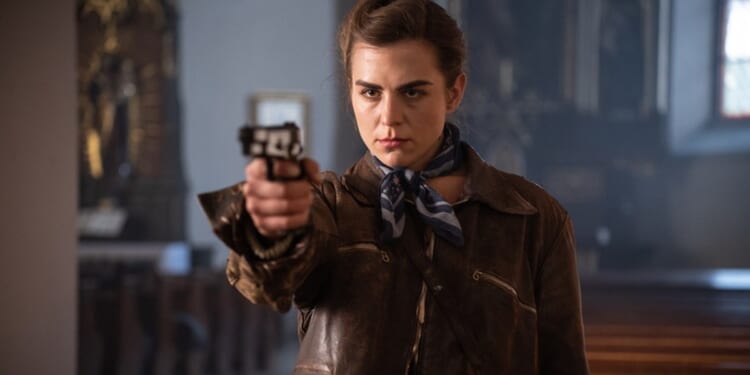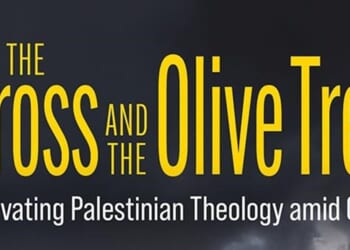WINSTON CHURCHILL considered Krystyna Skarbek his favourite spy. She was also the inspiration for Vesper Lynd in Ian Fleming’s Casino Royale. From The Partisan (Cert. 15), you can see why on both counts. Morgane Polanski poignantly enacts the daring exploits of Britain’s first female agent during the Second World War. The film is a soul-searching journey of discovery. With all the necessary changes in identity, who she truly is continually haunts her.
Raised in Poland, Krystyna has, according to “Trenchcoat” (Malcolm McDowell), her handler, inherited her father’s Catholic guilt and mother’s Jewish stubbornness. Suspecting her of undercover intelligence work, the Gestapo brutally interrogate her, constantly asking “Who are you?” Eventually released, MI6 supply new papers, enabling return to her native land by skiing across the Tatra mountains.
Her primary task is to obtain vital information on microfilm. Looking for her mother, Stefania (Agata Kulesza), a friend suggests St Paul’s Church. “I think she has found Jesus,” he says. Krystyna, crossing herself as she enters the building, offers Stefania escape. Recalling how cruel her daughter had previously been — the parish priest had called her a devil — she refuses to accept this act of atonement. Krystyna’s special mission also fails, with tragic consequences for others. It serves to harden her resolve to work unstintingly for the war effort.
From thereon, the director, James Marquand, makes good use of handheld camera work to convey the threatening hustle and bustle forever surrounding his protagonist. By extension, we, too, experience a stones-in-the-stomach feeling ourselves. The narrative switches to the parachuting of Krystyna into southern France. Posing as Pauline Armand, a schoolteacher, she is to work with a decimated Resistance group and supervise a weapons drop for them. Under the leadership of Roger (Frederick Schmidt), an Englishman and erstwhile conscientious objector, they have to deal with mistrust among the French. Nazi infiltrators have crucified some of them. The fear of betrayal looms large, not just from within, but by the Allies.
Far from certain of the latter’s true intentions, the couple strive to steer a righteous path. Roger is doubtful that they can achieve this. “There is no redemption for us,” he declares. We, the audience, would judge them less harshly. A St Christopher medallion hanging in a Resistance member’s car regularly features, a reminder of the talismanic endeavours of those seeking to carry the world out of danger to a better place.
Despite all odds, the group presses on with an ambush that will seriously sabotage German control. The venue is, of all places, the shrine of St Jude, patron saint of hopeless causes. The Partisan leaves it unsaid, but there is an abiding grace informing small acts of victory. The threat remains, and yet numerous shots of light being cast into darkened spaces encourage belief that the characters will, no matter how far off, not be overcome by evil.
Krystyna, a lost cause till the war, has found out who she truly is. It is an instance of seeing only in part before we come to know ourselves as we are known.
In cinemas. Digital and DVD release: 27 October

















